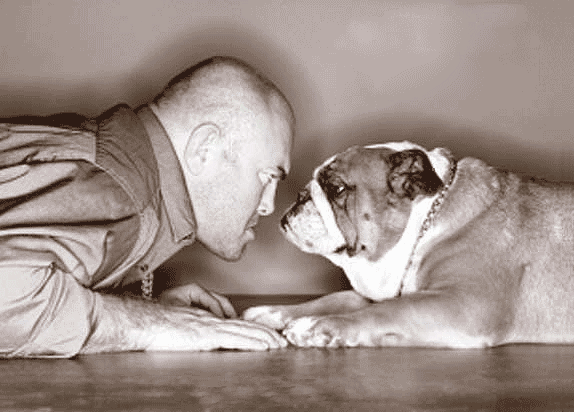 Man is higher than beast in a fundamental way. Rather than one who works on instinct alone, he is a rational being who can make decisions based on what is good and bad, right and wrong.
Man is higher than beast in a fundamental way. Rather than one who works on instinct alone, he is a rational being who can make decisions based on what is good and bad, right and wrong.Yet, so many people advise us to "go with your instinct," to follow your feelings, to let your impulses lead you wherever they will. This insures that you will express your true self, who you really are. Often this is said in the context of sex, or in some aspect of business or personal relationships, but it could be set in any number of contexts. It is represented as a virtue; on the other hand, they say it's destructive to "repress" your desires.
Who wants to be guilty of "repressing" something? That doesn't sound good. It's a negative-sounding word -- to "repress."
The truth is that it depends on what you're repressing.
Bishop Fulton Sheen, in one of his Life Is Worth Living telecasts entitled "How to Psychoanalyze Yourself," explains that when you repress something, you express something else; when you express something, you repress something else. He gave the example of an alcoholic. When the alcoholic represses his alcoholism by intentionally avoiding alcohol, he expresses love for his wife and family. When he represses his love for his wife and family, he expresses his alcoholism.
The alcoholic's instinct -- his immediate desire that screams for instant gratification -- is to drink himself silly. But as a human being, he is able to choose the higher road and make a "right" decision because of his rational nature. That rational nature is what separates the men from the boars, or any of the other animals.
Therefore, for the alcoholic to satisfy his instinctive cravings without consideration is to betray his own nature. That is to say, he "represses" that which makes him a human being. He is the one who truly commits the self-destructive act of "repression."
He should instead express his higher nature as a human being by exercising his rationality, choosing to do what is right, even if it means denying his impulses. To do otherwise is to participate in the Great Repression that has bankrupted countless souls in the human economy.
